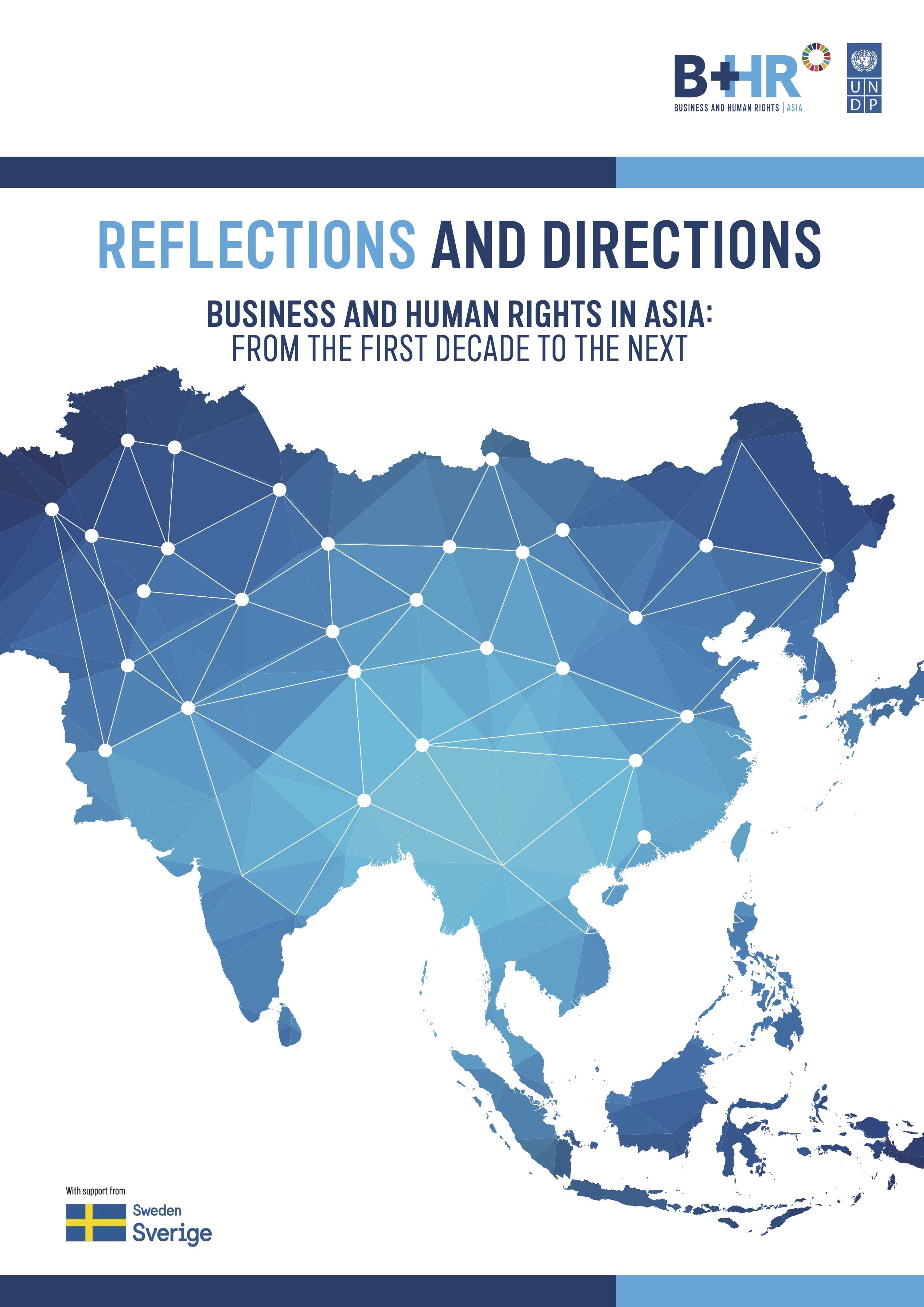Resources and perspective from the world’s leaders in business and human rights.

HRDD Best Practice Playbook
Human rights due diligence (HRDD) is a must for any responsible business. When done well, HRDD proactively prevents business-related harm and empowers affected people. this reduces legal, operational, and reputational risks, attracts talent, investors, and customers, and yields genuine sustainability. Any company can do this if they have the right playbook.

Reflections and Directions − Business and Human Rights in Asia: From the First Decade to the Next
This report serves to contribute to UNGPs10+ by surveying the status of business and human rights (BHR) across Asia, bringing together different visions and identifying opportunities for the decade ahead. It presents an overview of the status of BHR in Asia and focuses particularly (but not exclusively) on 11 countries demonstrating some progress on BHR namely Bangladesh, India, Indonesia, Malaysia, Mongolia, Myanmar, Nepal, Pakistan, Sri Lanka, Thailand, and Viet Nam.

Absent Norms on Responsible Exits
The corporate exodus from Myanmar has been haphazard at best, and the lives of ordinary people have been impacted deeply. The scene has highlighted a pressing normative gap. The world lacks norms to guide responsible exits.

Where is the human rights due diligence?
CAM and A30/ engaged local researchers and advocates and reviewed corporate disclosures to examine the extent and quality of HRDD underway in Myanmar. Our research revealed fateful gaps when and where HRDD was needed most.

Human Rights-Based Business
A human rights-based approach is a proven method of implementing human rights. Human rights practitioners utilize a human rights-based approach to turn human rights on paper into real-world practice and progress. It serves as a blueprint for doing the right things, the right way, proactively. Ultimately, a human rights-based approach is the best and only way to prevent harm in even the toughest circumstances and achieve wins for people, the planet, and business.

Assuring Respect
Corporate respect for human rights is about preventing business-related harm, and creating more resilient, responsible businesses and empowered communities in the process. It is not enough to say the right things, businesses must do the right things the right way, proactively to Assure Respect.

Navigating A New Era of Business & Human Rights
Each chapter in this collection reckons with a vexing issue in the field of business and human rights (BHR). Individually and collectively, the chapters afford a compass of sorts for stakeholders to orient themselves in an ever-evolving and often overwhelming landscape.

Human Rights Disclosure in ASEAN
Currently, human rights disclosure in Indonesia, Malaysia, the Philippines, Singapore and Thailand falls substantially short of the international norm set in the UN Guiding Principles both in terms of extent and quality. Disclosure is not an end but a starting point.

Effective Human Rights Due Diligence
There is a fateful difference between due diligence that manages the impact of human rights on a business enterprise and due diligence that effectively governs a business enterprise’s impact on human rights. The differentiator, the gateway to effective HRDD is rightsholder consultation.

Why Article 30?
The brilliance of Article 30 is in its elegance. Article 30 is simple but not always easy. It is an Article that simultaneously restricts, enables, and empowers. That is what business and human rights is all about.

Human Rights Reporting in Southeast Asia
How do top-listed companies in Malaysia, Singapore and Thailand currently assess the effectiveness of their efforts to identify and reduce risks to people’s human rights and to remedy adverse impacts that occur?

B-Lab has a human rights credibility problem
The B-Lab’s current approach propagates a notion of ‘good business’ that treats affected individuals and communities as passive bystanders, rather than rights-holders deserving of accountability and agency. This kind of ‘good’ can readily become opportunistic and exclusive, leaving behind the people and issues most deserving of attention.

Beyond a ‘materiality’ approach to human rights
When human rights appear on a materiality matrix, they sit alongside issues like environmental protections, transparency, corruption, responsible governance, health and safety, gender, diversity and inclusion, community engagement, consumer protection, accountability, taxation, and so on. The problem is that these are all human rights issues.

A Real World Preview of the Belt and Road Initiative
The situation in the highlands of Northern Shan State, Myanmar is evidence of how immense the Belt and Road Initiative’s impact will be on local life and politics. What is playing out in NSS frenzy of extraction, exploitation, extortion, and militarization. It is a self-fulfilling frenzy in that unscrupulous business interests and rent-seeking armed groups are colluding and feeding one another. It is all made possible by States that are unwilling or unable to protect.
